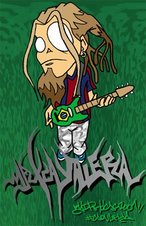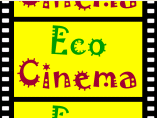
Man’s a filthy creature
Raping the land and water and the air
Tomorrow may be too late?
Now’s the time that you must be aware
Nature’s disappearing
Polluted death is coming, do you care?
Garbage going nowhere
Soon the dumps will spread to your front door
Lakes and rivers stagnant
Nothing lives or grows like years before
Nature’s disappearing
The world you take for granted ... soon no more
Read about pollution
Make manufacturers uncomfortable
Boycott at the market
Containers that are non-returnable
Aluminum, glass or plastic
Eternal waste that’s not destructible
We’re of a generation
That may live out our natural time
But as for all our children?
Born to suffocate in human slime
Nature’s disappearing
And we are guilty of this massive crime
A song with lyrics that are decades ahead of its season. All the ecological problems that humanity and planet faces today are developed; also the proposals for escaping the crisis, especially concerning the wastes. The singer urges people as consumers to boycott the waste-producing markets in order to press and oblige manufacturers to conform to a nature-friendy production and to prefer to buy products with (listen to it) RETURNABLE containers, not only recycable.
you can hear it live in youtube
15 September, 2007
Nature's Disappearing, by John Mayall And The Blues Breakers, Album: USA Union 1970
Αναρτήθηκε από
candiru - stratis aigaiopelagitis
στις
11:57 AM
![]()
Ετικέτες 70s decade, blues, John Mayall
Subscribe to:
Post Comments (Atom)




1 comment:
At the end of the sixties John Mayall was residing in Laurel Canyon and has developed connections with local musicians, befriending members of Canned Heat. Harvey Mandel and Larry Taylor had been both members of the band. With his new all-american line up Mayall pursued the jazzy blues experiment documented on his live album The Turning Point. The main change was replacing the sax and flute of Johnny Almond by the violin of Sugarcane Harris. In this unusual format (electric guitars, violin, no drums) the band created a unique sound that is virtually impossible to date. This intemporal quality allows new listeners appreciate the album even today.
http://en.wikipedia.org/wiki/USA_Union
Inside the album, Mayall wrote liner notes giving advice on preserving nature. It is possible that Mayall was influenced by the love of nature of another member of Canned Heat, namely Alan (the Blind Owl) Wilson. See also our comments to the song "Going Up The Country" of the same band.
He was probably influenced by other residents of the Laurel Canyon also (a canyon neighborhood of Los Angeles, California).
Laurel Canyon found itself a nexus of counterculture activity and attitudes in the 1960s, becoming famous as home to many of L.A.'s top rock musicians, such as Frank Zappa, The Byrds, Buffalo Springfield, and Love. Joni Mitchell, living in the home in the Canyon that was immortalized in the song, "Our House", written by her then-lover, Graham Nash, would use the area and its denizens as inspiration for her third album, Ladies of the Canyon. The bohemian spirit from that time period endures to this day.
http://en.wikipedia.org/wiki/Laurel_Canyon%2C_Los_Angeles%2C_California
All above information connects rock musicians like Mayall, Canned Heat, Joni Mitchell, Buffalo Sprinfield, Crosby-Stills-Nash-Young, not only as residents of the same area but also as sharing the same environmental values that sprung up at the west coast of USA (mainly San Fransisco and L.A.), through the hippy movement and matured later in the environmental movement and the movement of political ecology.
Post a Comment